EP 832 Rural Health Care Needs Present Unique Challenges
 As if our healthcare delivery system doesn’t have enough problems, wherever it is located, but often those concerns pale in comparison to the needs of folks who live a distance from metropolitan centers. Hospitals are closing at an unhealthy clip in rural areas and the types of care within others is limited by the availability of doctors and other professionals. Then, of course, there are other barriers to care, including transportation issues, health literacy, and the inability to deal with the behavioral health needs of the population. This is all a prescription for lower life expectancies and generally sub-par outcomes. Dr. Traci Marquis-Eydman, our guest, is an associate Professor of Medical Sciences at Quinnipiac University in Connecticut. She is also a family physician and an advocate for primary care and healthcare equity for rural and underserved populations. She has helped to put a focus on the needs of rural populations at the University, given her experiences in northern Maine.
As if our healthcare delivery system doesn’t have enough problems, wherever it is located, but often those concerns pale in comparison to the needs of folks who live a distance from metropolitan centers. Hospitals are closing at an unhealthy clip in rural areas and the types of care within others is limited by the availability of doctors and other professionals. Then, of course, there are other barriers to care, including transportation issues, health literacy, and the inability to deal with the behavioral health needs of the population. This is all a prescription for lower life expectancies and generally sub-par outcomes. Dr. Traci Marquis-Eydman, our guest, is an associate Professor of Medical Sciences at Quinnipiac University in Connecticut. She is also a family physician and an advocate for primary care and healthcare equity for rural and underserved populations. She has helped to put a focus on the needs of rural populations at the University, given her experiences in northern Maine.
Podcast: Play in new window | Download
 Americans consume a disproportionate amount of the illegal, and deadly, drugs in the world. Our guest on this podcast is well equipped to provide a nuanced response to why that is. The story of the fentanyl crisis is heartbreaking and should disturb each of us. The toll of death and destruction left in its wake is disorienting. Imagine a drug that is 50 times more potent than heroin and 100 times stronger than morphine. That’s fentanyl. It is the leading cause of the death for those 18 to 45 years old in our country. Again, it’s fentanyl. A drug in which just the equivalent of 3 grains of salt can kill you. You guessed it. Fentanyl. Dr. Robert Marbut, Jr., our guest on today’s podcast is a national expert on fentanyl. He is also known for his work on homelessness. For the purposes of this podcast we turn to him as Senior Producer of the compelling new documentary, “Fentanyl: Death Incorporated” that delves into the multifaceted aspects of this dangerous synthetic drug and the ways it is being used on the streets of America. The documentary introduces you to experts in international and domestic supply chains, law enforcement, medicine, harm reduction and more. His presentation is riveting, eye opening and shocking.
Americans consume a disproportionate amount of the illegal, and deadly, drugs in the world. Our guest on this podcast is well equipped to provide a nuanced response to why that is. The story of the fentanyl crisis is heartbreaking and should disturb each of us. The toll of death and destruction left in its wake is disorienting. Imagine a drug that is 50 times more potent than heroin and 100 times stronger than morphine. That’s fentanyl. It is the leading cause of the death for those 18 to 45 years old in our country. Again, it’s fentanyl. A drug in which just the equivalent of 3 grains of salt can kill you. You guessed it. Fentanyl. Dr. Robert Marbut, Jr., our guest on today’s podcast is a national expert on fentanyl. He is also known for his work on homelessness. For the purposes of this podcast we turn to him as Senior Producer of the compelling new documentary, “Fentanyl: Death Incorporated” that delves into the multifaceted aspects of this dangerous synthetic drug and the ways it is being used on the streets of America. The documentary introduces you to experts in international and domestic supply chains, law enforcement, medicine, harm reduction and more. His presentation is riveting, eye opening and shocking.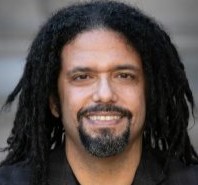 While we may attend games at stadiums, the way in which these cavernous facilities are erected, located, financed and owned is serious business. They represent the epicenter of many cities and have over the years reflected the cultural changes going on in our society. They have also hosted a range of activities beyond the sporting and entertainment events generally considered their sole domain. Home to political rallies, protests, awakenings, as well as charlatans and hucksters, they reflect the strengths and weaknesses inherent in the pendulum of democracy. The 21st century stadiums and arenas are being erected at a record pace and like the second Gilded Age which we are experiencing, they are gaudy, high tech and domains that cater to the wealthy strata of our society with sky boxes and private corporate suites. You will never think about these facilities in the same way once you read Frank Andre Guridy’s much acclaimed book “The Stadium: An American History of Politics, Protest and Play.” He is our guest on today’s podcast.
While we may attend games at stadiums, the way in which these cavernous facilities are erected, located, financed and owned is serious business. They represent the epicenter of many cities and have over the years reflected the cultural changes going on in our society. They have also hosted a range of activities beyond the sporting and entertainment events generally considered their sole domain. Home to political rallies, protests, awakenings, as well as charlatans and hucksters, they reflect the strengths and weaknesses inherent in the pendulum of democracy. The 21st century stadiums and arenas are being erected at a record pace and like the second Gilded Age which we are experiencing, they are gaudy, high tech and domains that cater to the wealthy strata of our society with sky boxes and private corporate suites. You will never think about these facilities in the same way once you read Frank Andre Guridy’s much acclaimed book “The Stadium: An American History of Politics, Protest and Play.” He is our guest on today’s podcast. Bad customer experiences are costing businesses more than ever, according to new research by experience management company Qualtrics. Its work projects global losses of $3.7 trillion annually–a staggering 19 percent increase from last year’s $3.1 trillion projection. You don’t need to see the macro picture when daily you suffer the frustrating indignities of calls to businesses not answered by a person on the other end who knows what they are talking about or the inability to ever get to that ill-informed person in the first place because the automated attendant won’t let you through. It can be maddening as a consumer. Michael Levine, the author of the influential business book “Broken Windows, Broken Business” saw this trend developing almost 20 years ago and has been writing about it ever since. The smallest things he notes can make the biggest difference in the success of a company. For example, if the cabin of an airplane is dirty, it makes you wonder whether the mechanical part of the plane is actually being attended to with care. Yikes! It’s the basis for a fun and wide- ranging discussion today.
Bad customer experiences are costing businesses more than ever, according to new research by experience management company Qualtrics. Its work projects global losses of $3.7 trillion annually–a staggering 19 percent increase from last year’s $3.1 trillion projection. You don’t need to see the macro picture when daily you suffer the frustrating indignities of calls to businesses not answered by a person on the other end who knows what they are talking about or the inability to ever get to that ill-informed person in the first place because the automated attendant won’t let you through. It can be maddening as a consumer. Michael Levine, the author of the influential business book “Broken Windows, Broken Business” saw this trend developing almost 20 years ago and has been writing about it ever since. The smallest things he notes can make the biggest difference in the success of a company. For example, if the cabin of an airplane is dirty, it makes you wonder whether the mechanical part of the plane is actually being attended to with care. Yikes! It’s the basis for a fun and wide- ranging discussion today.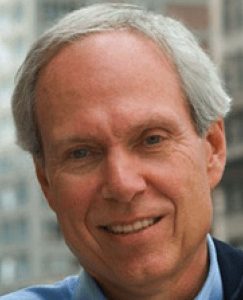
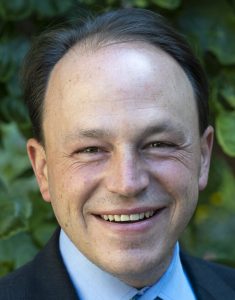 Once the party of the working class, the Democratic Party is now the home of highly educated citizens with progressive social views who prefer credentialed experts to make policy decisions, while Republicans have become the populist champions of white voters who increasingly distrust scientists, journalists, universities, Hollywood, and even corporations. The result of this new ‘diploma divide’ is the most consequential transformation in American politics since the New Deal realignment back in the 1930’s. Well into the 1980’s, as Ronald Reagan took the Southern strategy to new regions of the country, Democrats could count on the members of organized labor to back their party. Cultural shifts, perhaps even more than economic ones, ended their dominance. Our guest, Matt Grossmann, along with David Hopkins have written a book that explains the change. It’s called “Polarized by Degrees: How the Diploma Divide and the Culture War Transformed American Politics.”
Once the party of the working class, the Democratic Party is now the home of highly educated citizens with progressive social views who prefer credentialed experts to make policy decisions, while Republicans have become the populist champions of white voters who increasingly distrust scientists, journalists, universities, Hollywood, and even corporations. The result of this new ‘diploma divide’ is the most consequential transformation in American politics since the New Deal realignment back in the 1930’s. Well into the 1980’s, as Ronald Reagan took the Southern strategy to new regions of the country, Democrats could count on the members of organized labor to back their party. Cultural shifts, perhaps even more than economic ones, ended their dominance. Our guest, Matt Grossmann, along with David Hopkins have written a book that explains the change. It’s called “Polarized by Degrees: How the Diploma Divide and the Culture War Transformed American Politics.” When you experience grief, the world can feel overwhelming. It can be difficult to imagine a future. You feel lost and hopeless. This can happen because of the death of a parent, partner, sibling, child or even a longtime companion. Or it can occur because of the death of a relationship, marriage or even a promising career path. Regardless, we all experience it throughout our lifetimes, and we all have to find ways to cope. Our guest, international grief expert and noted author, David Kessler, a long-time colleague of Elisabeth Kubler-Ross, and the co-author on her last two books, has added to their scholarship on the subject by developing a sixth stage of grief, beyond acceptance, the fifth stage, to the point of ‘finding meaning’ in the loss. Kessler’s understanding of this new stage was hastened by the death of his 21-year- old son eight years back. His new book “Finding Meaning: The Sixth Stage of Grief Workbook” provides tools for releasing pain and remembering with love. This podcast gives him time to share his wisdom and the benefits of having this workbook when you may need it.
When you experience grief, the world can feel overwhelming. It can be difficult to imagine a future. You feel lost and hopeless. This can happen because of the death of a parent, partner, sibling, child or even a longtime companion. Or it can occur because of the death of a relationship, marriage or even a promising career path. Regardless, we all experience it throughout our lifetimes, and we all have to find ways to cope. Our guest, international grief expert and noted author, David Kessler, a long-time colleague of Elisabeth Kubler-Ross, and the co-author on her last two books, has added to their scholarship on the subject by developing a sixth stage of grief, beyond acceptance, the fifth stage, to the point of ‘finding meaning’ in the loss. Kessler’s understanding of this new stage was hastened by the death of his 21-year- old son eight years back. His new book “Finding Meaning: The Sixth Stage of Grief Workbook” provides tools for releasing pain and remembering with love. This podcast gives him time to share his wisdom and the benefits of having this workbook when you may need it.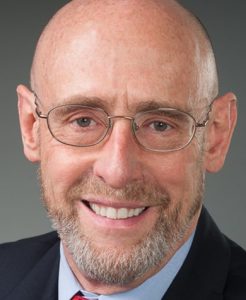 We have been talking about returning manufacturing jobs to the Rust Belt of the Midwest and the once vibrant manufacturing hubs of the Northeast for a long time. Almost since much manufacturing moved offshore about 50 years ago, leaving behind empty husks of buildings, environmental damage and broken lives. Yet doing so is easier said than done. America has become an economy known for its innovation, strong service sector and a consumer-driven economy. Yet, manufacturing jobs, not the old sooty ones, but advanced manufacturing has a multiplier effect on an economy, helping to generate five times its value for every person on the factory floor. While the Biden Administration passed major pieces of legislation to reshore, for example, our chips and clean energy industry, it is not enough to make us the once great manufacturing engine we were in the mid twentieth century. The incoming Trump 2 administration is looking to tariffs to do the trick. The reasons for our demise in this area are many. How we regain that dominance is an open question given the remarkable advances by China and others in supplanting us in this regard. To discuss all of is Harry Moser, the founder and president, of the Reshoring Initiative(reshorenow.org).
We have been talking about returning manufacturing jobs to the Rust Belt of the Midwest and the once vibrant manufacturing hubs of the Northeast for a long time. Almost since much manufacturing moved offshore about 50 years ago, leaving behind empty husks of buildings, environmental damage and broken lives. Yet doing so is easier said than done. America has become an economy known for its innovation, strong service sector and a consumer-driven economy. Yet, manufacturing jobs, not the old sooty ones, but advanced manufacturing has a multiplier effect on an economy, helping to generate five times its value for every person on the factory floor. While the Biden Administration passed major pieces of legislation to reshore, for example, our chips and clean energy industry, it is not enough to make us the once great manufacturing engine we were in the mid twentieth century. The incoming Trump 2 administration is looking to tariffs to do the trick. The reasons for our demise in this area are many. How we regain that dominance is an open question given the remarkable advances by China and others in supplanting us in this regard. To discuss all of is Harry Moser, the founder and president, of the Reshoring Initiative(reshorenow.org).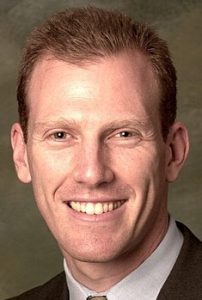 Interconnected technological change is happening more rapidly than at any time in history and on such a scale that its impacts will be profound in fields as diverse as health, food production, and the strength of the overall economy. It may even bail us out from our assaults on the planet. In a clear-eyed and easily understood manner, Jamie Metzl, a leading futurist and One Shared. World founder, explains all of this in his new book, “Superconvergence: How the Genetics, Biotech, and AI Revolutions Will Transform Our Lives, Work and World.” The challenge we face is that while our ability to engineer the world around us is advancing exponentially, our processes for understanding the scope, scale, and implications of these changes, and for managing the “godlike” powers wisely, are not keeping pace. His thinking is bold and inspiring as he explores with us the transformative nature of human knowledge, with a particular focus on biology and the life sciences. CRISPR babies? Doctors performing gene therapy? Analysts storing data in genes? What is happening here? A brave new world, indeed. Find out on this podcast.
Interconnected technological change is happening more rapidly than at any time in history and on such a scale that its impacts will be profound in fields as diverse as health, food production, and the strength of the overall economy. It may even bail us out from our assaults on the planet. In a clear-eyed and easily understood manner, Jamie Metzl, a leading futurist and One Shared. World founder, explains all of this in his new book, “Superconvergence: How the Genetics, Biotech, and AI Revolutions Will Transform Our Lives, Work and World.” The challenge we face is that while our ability to engineer the world around us is advancing exponentially, our processes for understanding the scope, scale, and implications of these changes, and for managing the “godlike” powers wisely, are not keeping pace. His thinking is bold and inspiring as he explores with us the transformative nature of human knowledge, with a particular focus on biology and the life sciences. CRISPR babies? Doctors performing gene therapy? Analysts storing data in genes? What is happening here? A brave new world, indeed. Find out on this podcast.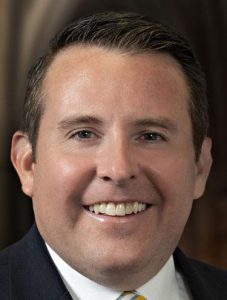 There was a time that America sensed that the right leader came along at the right time and pulled us through many crises–war, The Depression, pandemics and other economic travails. I am not certain we feel that way about some of the recent commanders in chief. Yet history reminds us we have had many forgotten chief executives who made it necessary for us to replace them with someone who could fix the mess they left behind. I am referring to a number before and after the Civil War. Is it that they didn’t live up to expectations or that we simply made the wrong choices? In any event, William Haldeman, in his new book, “Meeting the Moment: Inspiring Presidential Leadership that Transformed America,” singles out the qualities needed in a President-like judgment, ingenuity, dedication, courage, confidence and optimism and points to those who had these qualities and the telltale signs of their greatness. As we approach a transfer of power at this moment, it is a good time to reflect on these values and fall back on them as we evaluate our leaders going forward.
There was a time that America sensed that the right leader came along at the right time and pulled us through many crises–war, The Depression, pandemics and other economic travails. I am not certain we feel that way about some of the recent commanders in chief. Yet history reminds us we have had many forgotten chief executives who made it necessary for us to replace them with someone who could fix the mess they left behind. I am referring to a number before and after the Civil War. Is it that they didn’t live up to expectations or that we simply made the wrong choices? In any event, William Haldeman, in his new book, “Meeting the Moment: Inspiring Presidential Leadership that Transformed America,” singles out the qualities needed in a President-like judgment, ingenuity, dedication, courage, confidence and optimism and points to those who had these qualities and the telltale signs of their greatness. As we approach a transfer of power at this moment, it is a good time to reflect on these values and fall back on them as we evaluate our leaders going forward.